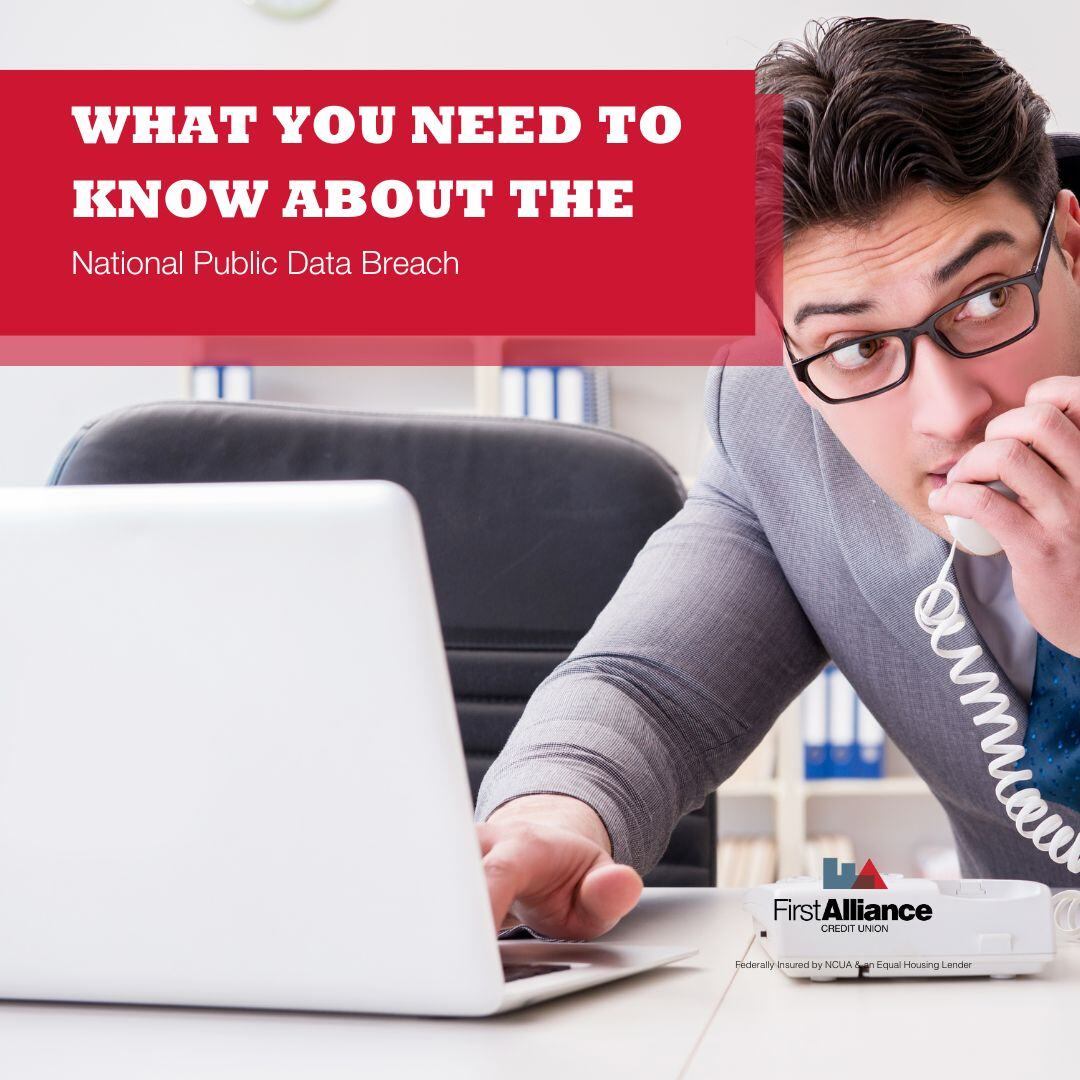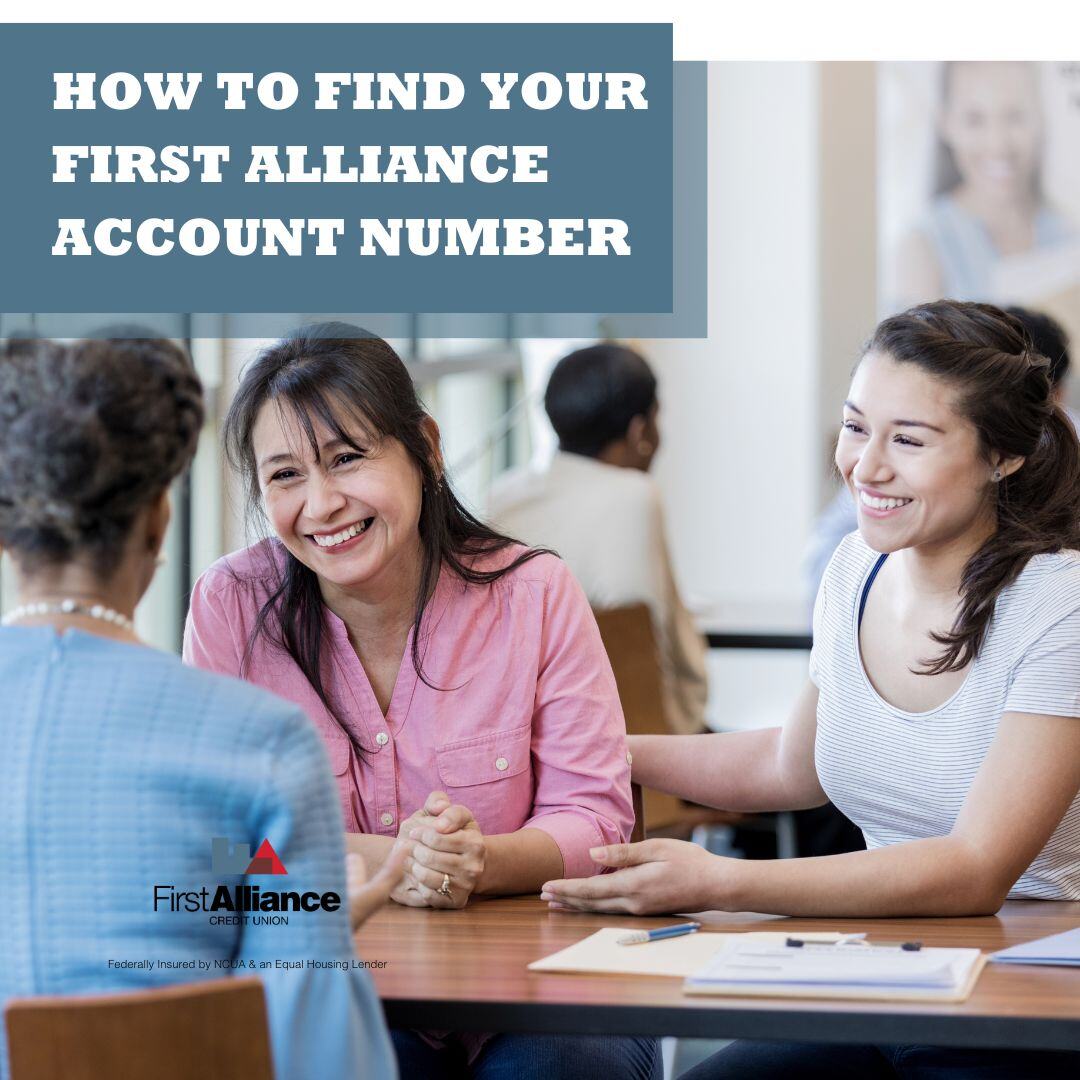Discover the New Mission, Vision, and Values at First Alliance CU
What happens when you put 15 of the top movers and shakers at First Alliance Credit Union into a room with one goal: to redefine what we stand for?...
2 min read
 Kamel LoveJoy
:
Sep 3, 2024 5:00:00 AM
Kamel LoveJoy
:
Sep 3, 2024 5:00:00 AM

You may have heard of the recent data breach at National Public Data, which potentially exposed sensitive data, including Social Security numbers and other Personally Identifiable Information. While the situation continues to develop, it's important to note that the number of impacted individuals may be lower than initially reported, as many of the stolen records belonged to deceased individuals.
.jpg?width=1200&height=630&name=National%20Public%20Data%20Breach%20(1).jpg)
In April 2024, a hacker known as "USDoD" allegedly infiltrated National Public Data, compromising personal records that were later sold and released on the dark web by other criminal groups. It's important to highlight that at this time, no credit or debit card information has been tied to this breach. The compromise appears to involve personal information, such as Social Security numbers, rather than payment data.

For more detailed information on this breach, we recommend reviewing the following articles:

While we cannot control breaches like these, there are steps you can take to safeguard your information. Here’s what we recommend:
Stay Vigilant for Account Takeover (ATO) Attempts: Be cautious of any unusual activity in your financial accounts. Regularly monitor your bank statements and credit reports for unauthorized transactions.
Enable Multifactor Authentication: Wherever possible, enable multifactor authentication on your online accounts. This adds an extra layer of security by requiring not just a password but also a code sent to your phone or email.
Update Your Passwords: Ensure your passwords are strong, unique, and include a mix of uppercase and lowercase letters, numbers, and special characters. Avoid using easily guessed information such as birthdays or pet names.
Check Your Credit Reports: Regularly review your credit reports for any suspicious activity. If you notice anything unusual, you may want to consider freezing your credit with the major credit bureaus to prevent unauthorized access.
Beware of Phishing Scams: Hackers often use phishing emails to trick people into giving up their personal information. Be cautious of any unsolicited emails or messages asking for personal details, and always verify the sender’s identity before clicking on any links or attachments.
Secure Your Devices: Make sure your antivirus software is up-to-date and run regular security scans. If you suspect your device may be infected with malware, seek professional help to ensure it's fully removed.

At First Alliance Credit Union, your security is our top priority. While this breach did not involve any of our systems, we want to make sure you feel protected. Here are the steps we've taken to safeguard your information:
Enhanced Account Security: We encourage all members to create strong passwords for their accounts. For added security, we will now require passwords for all transactions made via telephone.
Increased Member Verification: When you call our Member Contact Center, we may ask additional security questions to verify your identity and ensure that only you can access your accounts.
Regular Monitoring: Our team is closely monitoring for any signs of fraudulent activity. If we detect anything unusual, we will contact you immediately.
Resources and Support: If you have questions or concerns about your account security, please don't hesitate to reach out to us. We're here to help.
We understand that this situation may be concerning, but please know that we are committed to keeping your informed and protected. If you have any questions, feel free to contact us at 507-288-0330 or visit any of our branch locations. Your safety and peace of mind are our top priorities. Thank you for trusting First Alliance Credit Union.
Additional Resources:
Learn more about protecting your identity on our Resource Page.
Stay safe, and remember—First Alliance Credit Union is here to help you every step of the way.

What happens when you put 15 of the top movers and shakers at First Alliance Credit Union into a room with one goal: to redefine what we stand for?...

First Alliance Credit Union announced today their long awaited First Alliance Commons branch, along with partners Moka and Great Harvest Bread Company

If you need to access your First Alliance Credit Union account number for direct deposits or to set up an automatic withdrawal from your checking...